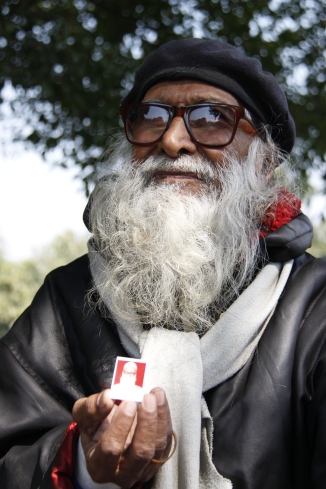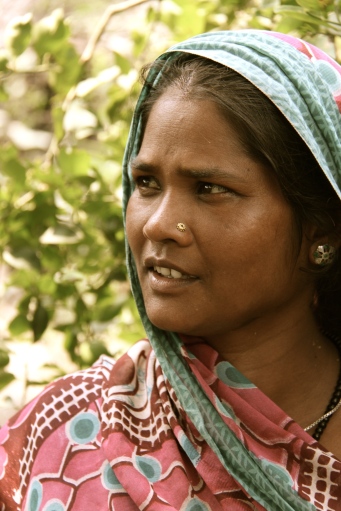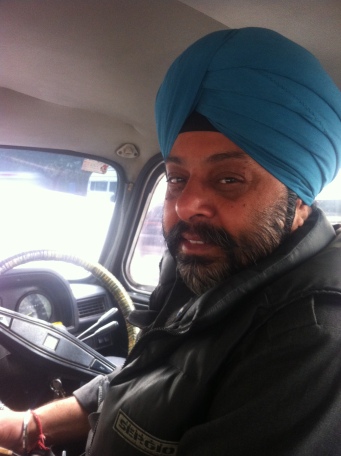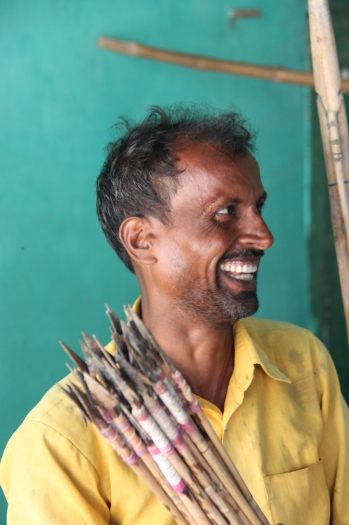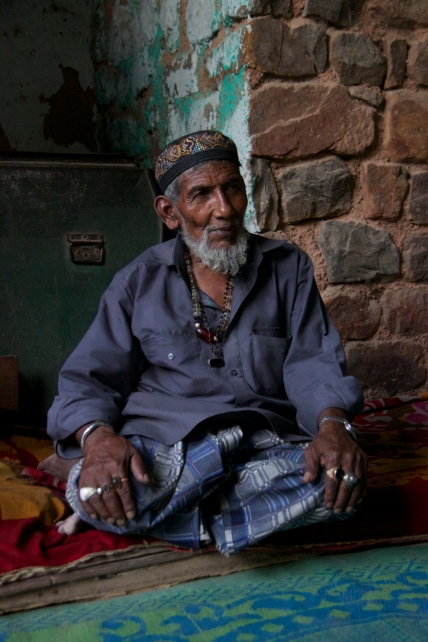
Ye zindagi, ye zindagi, ye zindagi,
Ek din tujhe daga de degi,
Isse pehle ki ye tujhe daga de,
Tu isse daga de de…1
Muhammad Anwar’s voice was gravelly, slow and deep. It rustled on the s’s and z’s as the Urdu couplets danced in rhythmic gusts from his tooth-bare mouth, carried on tobacco-stained breath.
He paused, looking at us intently through pale brown eyes.
Do you know what this means?
We shook our heads.
It means that one day this life will end. Your soul will leave your body. Before this happens, you must consciously die. Before dying to the physical world, you must die to yourself. Die while you are alive. As you go about your life—walking, talking, doing whatever you are doing—you must kill your inner demon; your materialism, your desires, your ego. He who wins over this inner demon will become immortal.
Nizamuddin Auliya has taught me many things over the years. But this is his most important lesson.
Around us in every direction, the sprawling megacity of Delhi heaved its way into the evening, yet somehow, just here, it felt quiet.
Mohammad Anwar lifted his large, bare right foot onto his left thigh, resettling himself into a low cross-legged position on the fading pink Persian rug beneath him. Opposite us, a kerosene lamp flickered within a small shrine, casting a dancing light onto its rough stone walls, and the green and yellow chadar (sacred cloth) that cloaked its base.
This open yet sheltered space, which lay at the heart of 14th Century Sufi saint Nizamuddin Auliya’s chilla (place of meditation), was separated from the elements by a crumbling dome. It had been Anwar’s home for more than 30 years, and was where he spent the majority of his waking and sleeping hours. There was little evidence of this, however. A tin box behind him held all of his worldly possessions – some clothing and a few pots. A pile of cement bags was stacked in the far corner.
This is Nizamuddin Auliya’s real place; his place of peace. It’s where he spent most of his time. He would go through periods of intense meditation here, disappearing underground for weeks and taking only a few dates with him. There is a chamber just beneath us, connected directly by a passageway to the dargah [Nizamuddin’s place of burial, which lies across the road]. It has a burning fire at its centre that never goes out. No-one has been able to get into it, but I’ve been there in my dreams.
Once some men tried to excavate it, but a huge amount of rubble fell and they had to give up the attempt. Another time, I tried to get into the chamber, but as I was digging at the brick, I heard a thousand voices shouting at me to stop; so I stopped. I was ill for two months after that. No doctor could cure me.
The fading Autumn light reddened, carrying upon it melodic prayers from Damdama Sahib’s Gurudwara next door, and the rhythmic chugs and passing horns of well-loaded trains, making their way into and out of Hazrat Nizamuddin railway station. In Nizamuddin’s time, more than 700 years ago, the area looked very different. The simple thatched lodging in which the Saint lived was surrounded by forest, and the Yamuna river flowed where railway tracks lie today. Devotees would visit him in large numbers, seeking relief from their worries and a lift in their spirits. Continue reading
